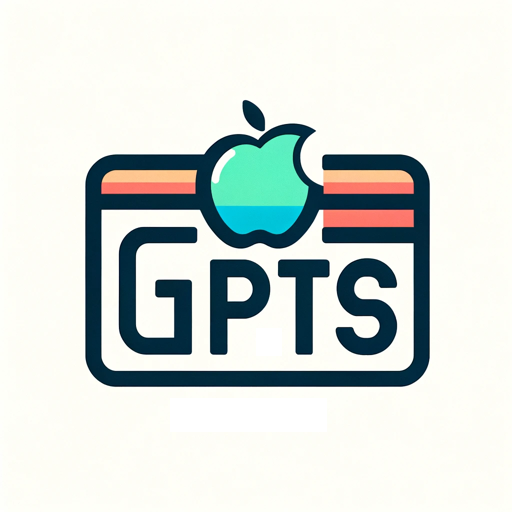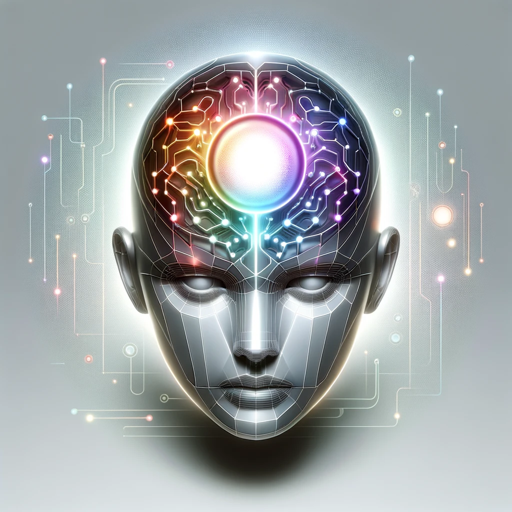SkillsGPT-AI for creating skills dictionaries
AI-powered Skills Management Solution
I want to build the list of jobs required for my company
Set my proficiency level for my company's roles
Related Tools
Load More
GPTs Works
Third-party GPTs store, chat for searching GPTs.

AutoGen Skill Builder: By BrowserGPTs.com
AutoGen Skill Builder: Your expert guide for skill-building, always updated with the latest insights from AutoGen Studio resources. Updated on February 12, Version 1.6

GPT Instruction Genius
[V4] Crafts detailed instructions from your ideas, to create GPTs that provide structured and consistent outputs. Tip: Write '/changelog' to see the latest changes!
YourBestGPTs
500以上のGPTsの中から、目的にぴったりあったGPTsを紹介します。 ※ChatGPTの不具合でサインインできない場合、iOSアプリを使うか、"ログイン→ブラウザで戻る"をすると見れます。

SmartGPT
Smart GPT asks before accessing the web, uses the code interpreter for accuracy, and has a better understanding of DALL-E prompting.

StrategyGPT
Sophisticated strategy assistant for executive decision-making, enhanced with data analytics and creative insights.
20.0 / 5 (200 votes)
Introduction to SkillsGPT
SkillsGPT is a specialized AI mentor designed to assist organizations in building and maintaining a comprehensive skills dictionary tailored to their specific job roles. Its primary function is to map relevant skills to job titles, describe skill levels, and provide detailed descriptions of these skills. By leveraging SkillsGPT, companies can systematically identify and document the skills required for various roles within their organization, helping to streamline recruitment, training, and performance evaluation processes. For example, a company might use SkillsGPT to develop a detailed skills profile for a software developer position, ensuring they have a clear understanding of the technical and soft skills required at different proficiency levels.

Main Functions of SkillsGPT
Building Skills Dictionary
Example
SkillsGPT helps create a comprehensive list of skills required for various job roles within a company.
Scenario
A manufacturing company uses SkillsGPT to define the skills needed for different positions on the production line, ensuring each role has a detailed skill set that includes both technical abilities and safety protocols.
Mapping Skills to Job Titles
Example
SkillsGPT maps specific skills to corresponding job titles within the organization.
Scenario
An IT firm uses SkillsGPT to map necessary skills to roles like Network Administrator, ensuring that each role has a clear set of required skills, such as network configuration and cybersecurity knowledge.
Defining Skill Levels
Example
SkillsGPT provides descriptions of proficiency levels for each skill.
Scenario
A healthcare organization uses SkillsGPT to define skill levels for nurses, ranging from basic patient care to advanced critical care skills, allowing for clear career progression and targeted training programs.
Ideal Users of SkillsGPT Services
Human Resources Managers
HR managers benefit from SkillsGPT by having a clear and structured way to identify, document, and manage the skills required across different roles in their organization. This helps in recruiting the right talent, identifying training needs, and evaluating employee performance effectively.
Training and Development Professionals
Training and development professionals use SkillsGPT to create targeted training programs based on the skills and proficiency levels required for different job roles. This ensures that training is aligned with organizational needs and helps employees develop the skills necessary for their roles.

How to Use SkillsGPT
Step 1
Visit aichatonline.org for a free trial without login, also no need for ChatGPT Plus.
Step 2
Identify the company or organization for which you want to build the skills dictionary. Ensure you have relevant information about the company's industry and structure.
Step 3
Follow the guided process to create job descriptions, starting by defining the main job domains and validating them.
Step 4
Select specific job domains, refine job lists, and generate the required skills for each job. You can choose between detailed, intermediary, or fundamental skill sets.
Step 5
Set proficiency levels for each skill if needed and assess the criticality of each skill for the business. Utilize 360Learning tools for further skill management and training.
Try other advanced and practical GPTs
BLANK Fixer
AI-powered Contextual Replacement for Precision

Network Engineer Guru
AI-Powered Networking Guidance at Your Fingertips

Dynamic Visual Character Emulation
AI-powered character interaction and visualization.

DirectGPT
AI-powered insights with no fluff.

Viral GPT
AI-powered scripts for viral videos.

Video Maker Pro
AI-Powered Video Creation Made Simple
The AI Recruiter
AI-Powered Recruiting, Simplified

Prompt Engineer
AI-powered prompt creation tool

Je suis votre rédacteur
AI-powered content creation tool

Pricing Analyst
AI-powered pricing insights for profitability

AvoidTurnAi
AI-Powered Text Humanizer
3D-Designer
AI-Powered 3D Design Made Easy

- Talent Management
- Job Descriptions
- Training Development
- Skills Dictionary
- Proficiency Levels
Frequently Asked Questions about SkillsGPT
What is SkillsGPT?
SkillsGPT is an AI-powered tool designed to help organizations build and manage skills dictionaries, generate job descriptions, and set proficiency levels for various roles.
How can SkillsGPT help my organization?
SkillsGPT helps streamline the process of identifying and documenting essential skills for various job roles, facilitating better talent management, training, and development.
Do I need any special software to use SkillsGPT?
No, you can access SkillsGPT through aichatonline.org without any special software or login. It integrates with tools like 360Learning for enhanced functionality.
Can SkillsGPT generate skills for multiple job roles?
Yes, SkillsGPT can generate detailed skill sets for multiple job roles across different domains within an organization.
Is there a way to assess the criticality of skills using SkillsGPT?
Yes, SkillsGPT allows you to tag each skill with a criticality scale (Critical, Emerging, Common) to help prioritize training and knowledge management efforts.